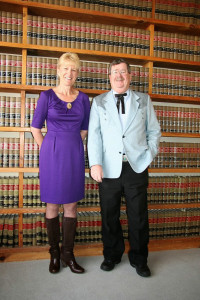 Why worry about probate when the new inheritance law exempts the first $5.25 million? What is probate, anyway? And why do I need a trust?
Why worry about probate when the new inheritance law exempts the first $5.25 million? What is probate, anyway? And why do I need a trust?
The word probate seems to engender a visceral reaction from some people. Indeed, entire books are written on how to avoid it. Probate is simply the activity generated when the court supervises the disbursement of an estate. Of course, once the courts are involved, reams of paperwork ensue and expenses grow. These expenses are not insignificant, but sometimes an even more important issue is the delay the courts can inject in the process.
One way to skirt this expense and delay is to set up a trust.
A trust is a tool you can use to manage your assets while you are alive and after you die, and it bypasses court intervention. That means your heirs can have almost instant access to the estate, and since you are the one who designates how the funds are to be used, you can put limits on that access.
For example, if the heir in question is too young to manage his or her own finances, the trust can designate just how the money or property is to be handled. In addition, it can be written to protect the heir from creditors or an unforeseen divorce. It can also incorporate beneficial tax strategies. In short, the trust is there to speed the transfer of property and make sure the maximum allowable inheritance finds its way unmolested to rightful heirs.

